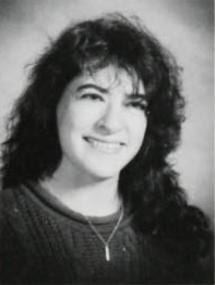Abstract
In Part 1 of her interview, Galia Siegel speaks about her work with Project Birth – an advocacy, service, and educational program for pregnant and parenting teens in South Providence, and founding its corollary, Peer Sister, which matched women in Project Birth with women at Brown who would tutor them.
In Part 2, Siegel discusses her belief that the general atmosphere at Brown turned her into an activist. She then speaks of her family life, cultural expectations, and going off to college.
In part 3, Siegel reviews the social environment at Brown, courses and professors, and relations between male and female students, expanding on her work with the Sarah Doyle Center and the student perception of the organization. She reflects on speeches and performances she attended at Brown, including speeches by 1988 presidential candidate Jesse Jackson and former President Jimmy Carter.
In part 4, Siegel concludes her interview with a consideration of feminism and activism at Brown.
Part 1
Part 2
Part 3
Part 4
Recorded on March 7, 1988
Interviewed by Karen Lamoree
Suggested Chicago style citation: Siegel, Galia. Interview. By Karen Lamoree. Pembroke Center Oral History Project, Brown University. March 7, 1988.
Biography
Galia Siegel grew up in Washington, D.C., and attended public school until she transferred to private school for her high school years. At the time of the interview, Siegel’s mother, who is from Argentina, was a linguist at the World Bank, and her father was a professor in chemistry at George Washington University. Siegel was always expected to attend a reputable college and then attain a high paying job upon graduation, and her parents did not endorse her interest in teaching. She originally wanted to study psychology at Brown University, but switched to public policy after her first year. At Brown, Siegel was involved with Extension, Project Birth, Peer Sister, the Student Homeless Action Campaign, the Student AIDS Taskforce, the Mount Hope Day Care Center, the Crisis Intervention Project, and the Sarah Doyle Women’s Center.
